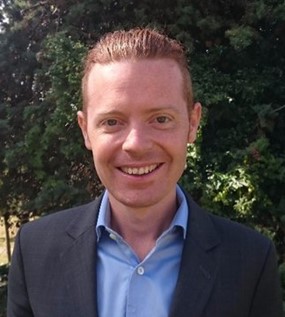Welcome to Issue 46!
 Welcome to the 46th edition of the International House Journal. We have a packed edition this time round and I’d like to thank all those who expressed an interest in writing for us. Out of the initial thirty-seven outlines and ideas, we’ve whittled down the content to the seventeen articles you’ll find in the following pages. We cannot possibly publish everyone who expresses an interest, but we are grateful for your continued support. Thank you especially to all those who wrote for us and I hope you enjoy reading their work.
Welcome to the 46th edition of the International House Journal. We have a packed edition this time round and I’d like to thank all those who expressed an interest in writing for us. Out of the initial thirty-seven outlines and ideas, we’ve whittled down the content to the seventeen articles you’ll find in the following pages. We cannot possibly publish everyone who expresses an interest, but we are grateful for your continued support. Thank you especially to all those who wrote for us and I hope you enjoy reading their work.
We had no theme for this edition, but one has crept over us – change. Regular readers will notice that we now have a new-look website for the Journal. It is linked to the main IHWO page and is a big improvement in terms of look and readability. Articles should be easier to find and each has their own page. You can also still download the PDF of the whole Journal too, something popular in many schools. Thank you to Georgina Deacon for her hard work on these changes.
On a sadder note, one change that happened to ELT in the spring was the recent passing of Michael Lewis. For years a giant in the field, his popularising of ideas about the lexical nature of language has influenced thousands of teachers worldwide. I certainly found The Lexical Approach to be a seminal text in my own development as a teacher and recommend it still on Delta courses. The style may not be to everyone’s taste but there’s no doubt that most of the ideas therein still hold up today. You can see this in the work of people like Hugh Dellar, who knew Michael, and who agreed to our including his recent post – In Memoriam: Remembering Michael Lewis – in this edition, something for which I am grateful.
Looking forward, change is also apparent in Arthur Laing’s article thinking about native-speakerism and different varieties of English in teacher training. The questions Arthur reflects on have no easy answers and mirror the changing nature of our more globalised world, something we would all do well to consider when we think about what constitutes ‘correct’ English. Our changing world also led to IWHO’s first Facebook Live session for teachers. Hosted by Sandy Millin, she reports on the questions she was asked during the event. Glenn Standish continues the theme by telling us about some recent changes at IH Torun, with an unexpected yet inspired visit to an Escape Room – certainly something to remember.
Moving to Younger learners, Xana de Nagy muses on how changing the way we think about something simple like a box can lead to some interesting activities to try. In the adult classroom, Alastair Grant tells us about a change that came over a mutinous class and looks to Psychoanalysis for answers. Phoebe Gomes reports on changes in her teaching from the experience of teaching Cambridge exam classes in a piece useful for all teachers starting out teaching exams. In management, Rory Duncan also wades in changing waters, describing how a change to the way he manages teachers promoted greater engagement and motivation.
Finally, we have our usual selection of practical classroom ideas for you to try out in your lessons. Anka Zapart shares some simple and effective ideas for using dice, with Natasha Kitano presenting us with an activity for using Carpool Karaoke in class. Matt Adams & Ethan Mansur give us some advice for teaching cover classes, while Luke Armstrong has some similarly useful words on teaching advanced groups. Marianne Jones shares ideas for using a digital tool – QR codes – in lessons, and Katie Powles encourages us to try out visualisations to increase motivation, both for learners and teachers. Taking a longform view, Madeleine Hill writes of her vast experience of teaching, with advice worth everyone’s consideration. Last but not least, Jessica D’Ambrosio shares a game for teaching determiners with YLs, and Amy Gower has some ideas to get YLs writing (something not always easy!).
As ever, there’s plenty to read, plenty to think about, and plenty of ideas to take to the classroom. Try something new you found in these pages – after all, a change is as good as a rest.
Editor's bio: Chris Ożóg is a teacher, teacher trainer and writer, based in the wonderful city of Kobe, Japan. He’s been involved in English Language Teaching for long enough now to have white hairs appearing, usually working for International House, and is the current editor of the IH Journal. Chris also tutors on online training courses with NILE, Bell, IHWO, and Distance Delta.
